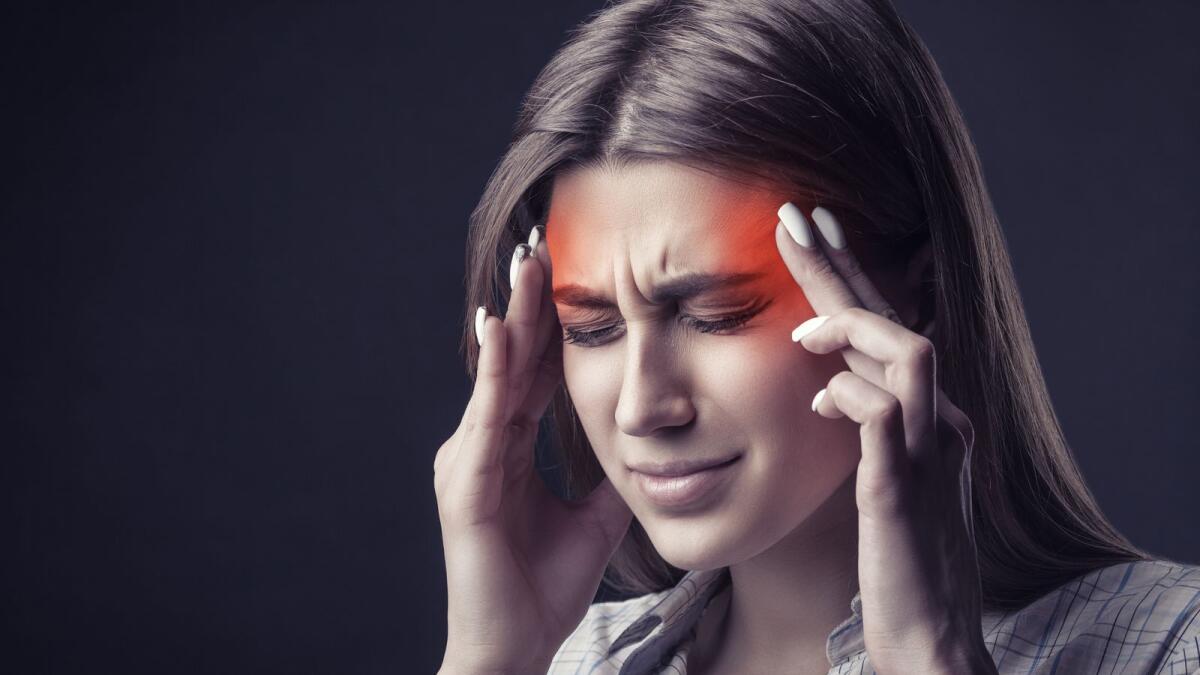Title: Managing and Reducing Headaches through Lifestyle Changes
Date: Thu 26 Oct 2023, 9:20 AM
Headaches, a common ailment experienced by many, can be effectively managed and reduced through identifying triggers and adopting lifestyle changes. By understanding the characteristics and triggers of different types of headaches, individuals can take proactive steps towards a healthier and more comfortable life.
Tension headaches are often described as a dull, steady pain, resembling a tight band around the head. To find relief, practicing relaxation techniques such as deep breathing and meditation can be beneficial. Additionally, applying warm or cold compresses to the forehead or neck and maintaining proper posture while taking breaks during prolonged periods of sitting can provide relief.
Migraines, on the other hand, are characterized by intense, throbbing pain and are often accompanied by nausea, light sensitivity, and aura. When experiencing a migraine episode, finding a quiet, dark room to rest is essential. Cold or warm compresses on the head or neck can also help alleviate the pain. Identifying and avoiding triggers such as specific foods, lack of sleep, or stress can further prevent migraines.
Cluster headaches, known for excruciating pain around one eye, often occur in clusters at the same time each day. High-flow oxygen therapy can provide relief during an episode, and medications prescribed by a healthcare professional may also be useful. Maintaining a consistent sleep schedule is another crucial step in managing cluster headaches.
Sinus headaches, characterized by pressure and pain in the forehead, cheeks, and nose areas, can be relieved through the use of saline nasal sprays to alleviate congestion. Applying warm compresses to the sinus areas and staying hydrated, possibly with the help of a humidifier, can also aid in reducing sinus headaches.
Rebound headaches, or medication overuse headaches, occur as a result of frequent pain medication usage. Reducing the use of pain medications under medical supervision, establishing a regular sleep schedule, and addressing the root cause of pain are necessary steps in managing and preventing rebound headaches.
Hormone headaches, also known as menstrual migraines, are triggered by hormonal fluctuations and often occur before, during, or after menstruation. Hormonal therapy under medical guidance, maintaining a consistent sleep schedule, and identifying and managing stress triggers can help alleviate hormone headaches.
Caffeine withdrawal headaches can be caused by a sudden decrease in caffeine intake. To avoid these headaches, gradually reducing caffeine intake is recommended. Staying hydrated and considering alternative beverages like herbal tea can also help prevent caffeine withdrawal headaches.
Dehydration headaches, characterized by dull pain and feelings of thirst, can be managed by increasing fluid intake, particularly water. Consuming hydrating foods such as fruits and vegetables and avoiding excessive caffeine and alcohol can also alleviate dehydration headaches.
While these remedies provide general guidance, it is important to consult with a healthcare professional for personalized advice. Understanding the type of headache and its triggers is the key to effectively managing and reducing their frequency, paving the way for a healthier and more comfortable life.
ALSO READ: Tips for a Good Night’s Sleep and its Positive Effects on Health.

I have over 10 years of experience in the field of cryptocurrency and blockchain technology. I have attended numerous conferences and events around the world, and my work has been featured in major publications such as CoinDesk, Bitcoin Magazine, and Yahoo Finance.

